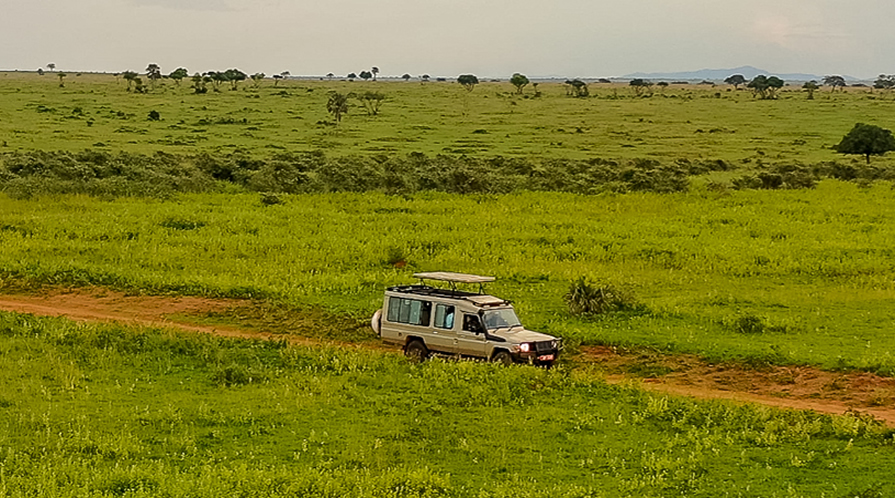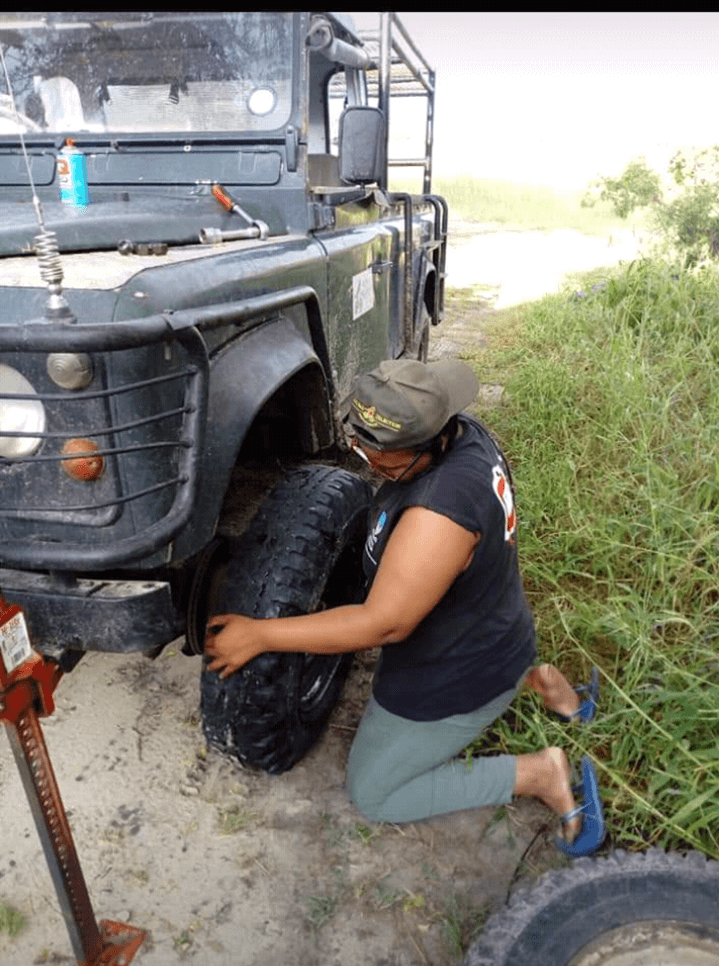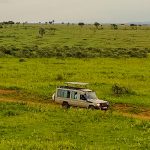
Planning a self-drive safari in East Africa requires meticulous organization. You’re responsible for all arrangements, including accommodation bookings, itinerary planning, and related activities. A crucial first step is securing a safari vehicle; this can be conveniently done online before your trip. Remember to factor in other essentials like permits, park fees, and comprehensive travel insurance for a smooth and safe adventure.
Here are some important things to remember when going on a self-drive safari, whether in East Africa or anywhere else on the continent.
Fill the 4×4 with gas whenever possible
When you are on a self-drive safari in East Africa, knowing when to find the next gas station is important for a smooth safari. The region has a reasonably well-established network of fuel stations, especially along major highways and in urban centres. Countries like Kenya, Uganda, and Tanzania have prominent fuel providers such as TotalEnergies, Shell, Rubis, and Petrocity, which operate numerous service stations.
However, in remote areas and national parks, fuel stations can be sparse where by you can drive something like 100km without finding a fuel station, so it’s advisable to refuel at the last major town before entering national parks, and always make sure your 4×4 doesn’t go below quarter tank. Carrying extra fuel in jerry cans is a wise precaution for longer trips into the wilderness.
Bring some emergency cash in case ATMs are unavailable.
In most of the remote areas and national parks in East Africa, ATMs are unreliable. Mechanical failures of your 4×4, power outages, or simply distance from the nearest town can leave you stranded. Carrying emergency cash isn’t just a precaution; it’s a necessity. This cash acts as your backup for unexpected expenses, such as fuel shortages, unexpected vehicle repairs, or unforeseen accommodation needs. You should carry enough money that take you several days, providing a safety net for unforeseen circumstances.
In addition to the unforeseen circumstances, even in remote areas of East Africa, most facilities like accommodation, Gas stations, and supermarkets don’t charge Visa cards, so having emergency cash will help you out.
Learn Some Car Repair Basics
 When planning a self-drive adventure in East Africa, it’s crucial to prepare for potential vehicle issues, given that most interesting tourist attractions are found in the remote parts of the country. It’s important to learn some vehicle-repair skills, such as fixing a flat tire, checking oil levels, and addressing minor mechanical problems. This knowledge can save you from delays or costly repairs during your safari. Additionally, consult an experienced mechanic before your trip to identify which spare parts to carry, such as fan belts, fuses, or a tire repair kit. Being equipped with these essentials ensures a smoother and safer travel experience, especially in areas with limited services.
When planning a self-drive adventure in East Africa, it’s crucial to prepare for potential vehicle issues, given that most interesting tourist attractions are found in the remote parts of the country. It’s important to learn some vehicle-repair skills, such as fixing a flat tire, checking oil levels, and addressing minor mechanical problems. This knowledge can save you from delays or costly repairs during your safari. Additionally, consult an experienced mechanic before your trip to identify which spare parts to carry, such as fan belts, fuses, or a tire repair kit. Being equipped with these essentials ensures a smoother and safer travel experience, especially in areas with limited services.
Get an International Driving Permit
For a self-drive safari in East Africa, most countries permit driving with your home license if it’s in English. However, obtaining an International Driver’s License is a better choice, particularly when embarking on a long self-drive safari. It not only serves as a backup in case your home license isn’t accepted but also simplifies communication with local authorities. This added documentation can enhance your confidence and convenience throughout your safari.
Carry plenty of extra water, plus some food
When embarking on a self-drive safari in East Africa, packing the right supplies is crucial for a safe and enjoyable trip. It’s essential to carry ample water and sufficient food rations for the duration of your planned excursion, ensuring you have enough sustenance until returning to civilization. This preparedness is especially vital in case of unforeseen circumstances, such as a vehicle breakdown in a remote location. Having these supplies on hand will provide comfort and sustenance while awaiting assistance.
Consider renting a satellite phone
Choosing to visit East Africa on a self-drive is an amazing way to explore this incredible destination. However, exploring the remote wilderness area requires careful planning. Many car rental companies offer satellite phone rentals—a crucial consideration for any self-drive trip. The long distances and potential lack of cellular service in many national parks and reserves make a satellite phone an invaluable safety net. Should you encounter mechanical problems, wildlife encounters, or medical emergencies in the remote areas, a satellite phone provides a lifeline to call for assistance. Having a satellite phone allows you to fully immerse yourself in the breathtaking landscapes and wildlife encounters, knowing you have a reliable communication system in case of unexpected events.
Avoid driving at night

Driving at Night
To ensure a safe and enjoyable self-drive safari in East Africa, it’s important to avoid night driving. Wildlife, livestock, and people frequently share the roads, and visibility at night is significantly reduced, increasing the risk of accidents. Before starting your self-drive trip in East Africa, thoroughly familiarize yourself with local driving regulations, which may differ significantly from what you’re used to. Be prepared for unexpected encounters; livestock, such as cattle, goats, and sheep, often wander onto roads. Remember, patience and caution are key to driving on African roads safely. Be aware of your surroundings, and drive defensively to avoid any unforeseen events. A little preparation goes a long way in ensuring a safe and memorable East African adventure.
Try to avoid traveling during the rainy season
It’s advisable to avoid traveling during the rainy season, particularly in countries like Tanzania and Kenya. Heavy rainfall often leads to a lot of flooding, which can obstruct daily activities and make traveling from one place to another difficult. Roads frequently become muddy, slippery, and difficult to navigate, leading to delays or potential safety risks. Planning trips outside this season ensures a smoother and more amazing safari experience.


